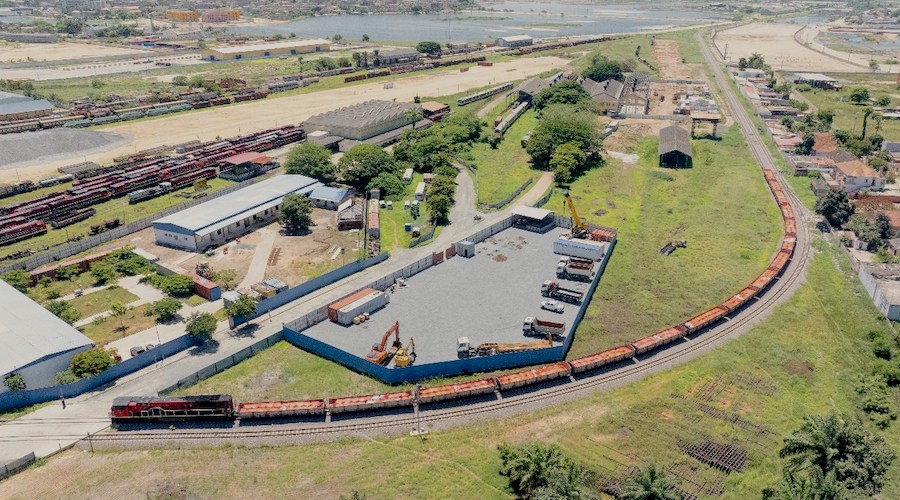Trade Tensions Escalate As Mexico Targets Vietnamese Steel Imports
- Vietnamese exporters of cold-rolled steel sheets now face new tariffs, although they can exempt themselves by proving non-Chinese steel sourcing.
- The U.S. has also raised concerns over the origin transparency of steel and aluminum imports from Mexico.
- Latin American steel production has declined due to low-cost imports and fluctuating global steel prices, affecting the region's self-sufficiency in steel production.
Via Metal Miner
Neither China nor rising global steel player Vietnam had a very good 2023 due to fluctuating steel prices and demand. Like some other steel-producing countries, both have primarily resorted to flooding foreign markets with cheap steel products to remain in the black. This has led to massive protests from countries where these imports land, including India.
Some importing nations have already imposed steep tariffs on such imports to protect their domestic players. Recently joining this growing list is Mexico. Indeed, 2024 may have started off on the wrong note for Vietnam, as this Mexico recently imposed a massive entry tariff of up to 80% on imports of certain steel products.
The decision came after domestic manufacturers like Ternium protested about unfair competition. The Mexican government then launched a major investigation to help them understand whether imports from Asian countries were a indeed serving as a major deterrent for local steel makers.
Hoa Phat and Posco Vietnam Can Still Avoid Tariffs
As a result, certain Vietnamese exports of cold-rolled steel sheets are now subject to the new tariffs. However, exporters can exempt themselves if they can demonstrate that they source their steel from countries other than China. This was made official in a statement by the economy ministry in Mexico’s official gazette. Hoa Phat, Vietnam’s largest steel manufacturer, now has a tariff of nearly 12%, whereas Posco Vietnam faces a 26% tariff. That said, the exemption for proving the country of origin is also available to these companies.
The U.S., too, continues to raise issues regarding the import of steel and aluminum goods from Mexico, citing concerns about the transparency of the products’ actual origins. Meanwhile, other global players wonder how all of these new developments will impact steel prices.
Why Vietnam?
Many steelmakers accuse China of dumping or selling off its excess steel in the Mexican market at prices that some report as being lower than production costs. Now it seems that certain Vietnamese companies are little more than a proxy for these Chinese firms. When the accusations of this “proxy trade” grew shriller, the Mexican government ordered an investigation. Soon after, they determined that any imports from Hoa Phat and Posco Vietnam, among others, would be taxed.
In Latin America, as with many other parts of the world, China is the biggest steel exporter. As per one estimate, the country supplies about one-third of steel products in this region. It was only last August that Mexico increased tariffs to 25% on a few steel imports from those nations, including China, that did not have a free-trade agreement.
Is Steel Production in Latin America Declining?
The NASDAQ recently quoted a Reuters report saying that steel production in the Latin American region has fallen in the past few years. They mainly cite the low cost imports as well as fluctuating global steel prices and demand. Meanwhile, according to the Latin American association Alacero, the region was supposed to produce 83% of the steel it consumes in 2023.
At a recent seminar, Alacero predicted that 2023 would see consumption go up by 2.4% compared to 2022, touching 71 MT. However, domestic production would see a decrease of 7.5%, totaling 58 MT. Compared to 2022, export volumes would show a drop of 2.6 MT, registering at 7.9 MT. At the same time, the volume of imports would go up by 2.1 MT to about 26.5 MT.
Vietnam’s Side of the Story, Steel Prices, and Production Levels
If one were to look at steel market performance in Vietnam, the past year has not been too good. Indeed, there’s been a steep fall in steel prices and poor uptake, just like in China. Meanwhile,, Vietnam’s steel sector continues to experience a significant decline, as evidenced by the 19 price drops implemented since early 2023. The current price is approximately U.S. $548.56 (13.5 million VND) per ton.
Most analysts attribute the slumping Chinese steel prices to a sluggish real estate market, delayed public investment payouts, and intense competition from imports. Yet, some experts remain positive that the industry will recover this year due to the government’s ongoing policies. This includes a revised Land Law that could help the realty market and the construction industry.
Per figures from the Vietnam Steel Association (VSA), steel manufacturing output in September 2023 was about 2.34 million tonnes – up 2.41% month-on-month, but down 4.2% year-on-year. However, the domestic use of steel was about 2.2 million tonnes. This represents a 4.69% increase month-on-month and a 9.4% jump year-on-year. The VSA claims this is an indication of the positive steps taken by the government to remove hurdles and help the economy.
The VSA also noted that despite signs of revitalization in public investment and the real estate sector, the steel market will likely not experience a robust rebound until the first quarter of 2024.
By Sohrab Darabshaw
.jpg)







